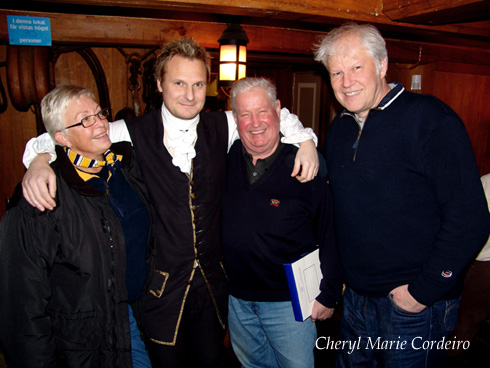
Avocado with shrimps, an au naturel entrée
Photo Jan-Erik Nilsson for Cheryl Marie Cordeiro © 2009
Crisp and refreshing, this avocado entrée with shrimps provides a filled with natural goodness, creamy but not too heavy entrée to any dinner party. Most alluring about this dish is that all ingredients can be homemade without preservatives with little time and effort.

Remove the avocado seed with a slight twist of the knife.
What you’ll need for this are equal parts of crème fraiche and mayonnaise, a dash of black and white pepper, pinch of salt, some fresh dill that is chopped finely, and a squeeze of lemon juice. If you don’t wish for the slight sour tint of flavour that comes from the crème fraiche, you can substitute that with whipped cream instead. Mix all the ingredients till the flavours are well incorporated, then add the shrimp, stirring again. This can be prepared the night before, which I find a real time saver for dinner parties.

Mixing the ingredients.
I’ve really only come across eating avocados with shrimp when in Sweden a few years ago. Because of its simple luxury – quick and easy to prepare, something that looks decadent without the extravagant prices, plus it’s as eco-friendly as cooking can get with all natural ingredients – it’s been one my favourite things to eat when living in Sweden since.
Enjoy!
















